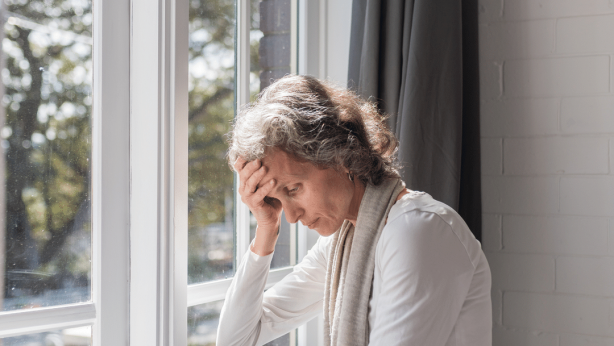Signs and Symptoms of the Menopause
The menopause marks the natural end to a woman’s reproductive life. Typically, you are seen to have moved into the menopause when you have been free of periods for over 12 months. Menopause usually happens in your late 40s to early 50s and is deemed early menopause if you are under the age of 45. The average age range for the onset of the menopause is from 45-55
Whilst the menopause is a normal process, it results in a significant alteration in hormone production, particularly, oestrogen deficiency. The associated physical symptoms which are the most notorious consequence of menopause are of particular focus to our consultants. Our specialist team have helped women with a range of symptoms, from low mood or emotional instability, to distracting hot flushes and insomnia. We have extensive experience in applying the latest research and treatment methods to help manage and alleviate these problems.
What is perimenopause?
Whilst there is much discussion and awareness around the menopause, there can be some confusion when women begin to experience the onset of symptoms. Whilst the absence of periods is required for a diagnosis, as many women know there are many symptoms that can begin even before menstruation becomes irregular.
The following signs and symptoms may be experienced in the months leading up to menopause:
- Hot flushes
- Mood instability
- Memory issues
- Weight gain
- Insomnia
- Night sweats
- Vaginal dryness and painful intercourse
- Reduced libido or sex drive
- Less breast fullness
It is important to remember that even during the perimenopause, with irregular periods, whilst unlikely, you are still able to conceive, so birth control measures should be taken as appropriate.
Onset of the menopause
There are a number of ways that the menopause can come about. It could be the result of:
Primary Ovarian Insufficiency or Ovarian Failure
This type of menopause is also known as early onset or premature menopause.
Unfortunately, many women suffering from primary ovarian insufficiency do not uncover the root cause of their early menopause. Occasionally, autoimmune disease or a genetic component is identified. Hormonal supplementation is usually recommended to offset the health consequences of the menopause and oestrogen deficiency such as osteoporosis.
Natural menopause
Natural hormonal decline in women can start as early as your late 30s. As you age through your 40s the decline in oestrogen and progesterone production from your ovaries accelerates, reducing your fertility.
In the years leading up to menopause you may notice change in your periods. The flow, duration and discomfort of your menstrual cycle may alter, with many women noticing irregularity as one of the first symptoms. Ultimately, your periods stop, signalling the onset of the menopause.
Surgical menopause
This occurs as a result of the surgical removal of both ovaries, which will often be performed in conjunction with removal of the uterus (hysterectomy).
The onset is more acute, resulting in more marked symptoms.
Induced Menopause
Cancer treatments such as chemotherapy and radiotherapy are both known to impact your ovarian function and potentially induce the menopause. We can liaise with your oncologist to review the impact treatment has had on your fertility and advise on whether your fertility may return in the future.
Menopause that is induced by these treatments gives rise to the same symptoms commonly experienced such as irregular periods and hot flushes.
What are the health risks associated with the menopause?
Low oestrogen, along with other changes in your body can leave you at a higher risk of a number of medical conditions. Below we outline some of the major points to be aware of.
Cardiovascular disease
This is a direct result of your lower oestrogen levels. Although worldwide cardiovascular disease is the leading cause of death for both men and women, your risk as a woman increases further after menopause.
Fortunately, lifestyle changes can make a significant difference and return your level of risk closer to baseline. Our consultants give invaluable advice on how to manage other risk factors such as high blood pressure, cholesterol, smoking and obesity.
Weight gain
Obesity has been mentioned as a driving factor in cardiovascular disease. The menopause slows a woman’s metabolism temporarily, meaning lifestyle changes such as diet and exercise become all the more important in reducing symptoms.
Sexual dysfunction
Oestrogen maintains good vaginal health and once this hormone begins to decline, various signs may become apparent. Vaginal dryness is a common complaint, with low hormone levels reducing both vaginal elasticity and secretions.
This in turn can lead to discomfort during sex and compound any feelings of reduced libido. We are able to offer a range of treatments, including oestrogen-based creams, pessaries or rings to help restore normal function.
Urinary Incontinence
Reduced vaginal and urethral (water tube) elasticity can cause issues with continence or being able to pass urine when you choose to. This can be brought about through sudden movements such as laughing or coughing, or can leave you feeling like you need to rush to the toilet more often than usual.
Our urologists and gynaecologists are very experienced in dealing with all variations of incontinence and use the latest advances in medical technology to reach a prompt diagnosis and optimal treatment plan.
When should I see a doctor?
If you are beginning to find your symptoms overbearing or if there is any concern at all then it is best to come in for a consultation. Depending on your age and symptoms a number of screening tests may be advised to rule out other health conditions.
Remember, if you have gone without periods for over a year and had subsequent bleeding, it is always best to come in for a check-up.
What treatments are available?
Treatment for menopause usually begins with suggested lifestyle changes that can be of benefit to your overall health and well-being. If these changes do not sufficiently reduce your symptoms to a manageable level, then there are a number of options available that can be discussed at consultation.
Each treatment plan will be designed around each woman and her particular needs, based on our findings and your most important concerns. Treatments can include:
- HRT medication to increase the levels of oestrogen in your body
- Oestrogen containing medications to reduce vaginal dryness
- Mental health support to deal with mood and issues surrounding the menopause
HRT in particular requires consideration of your symptoms, the risk associated with treatment and the effectiveness of the medication for you.
If you are interested in meeting one of our experienced consultants to discuss further call us now on 0207 079 2102.



